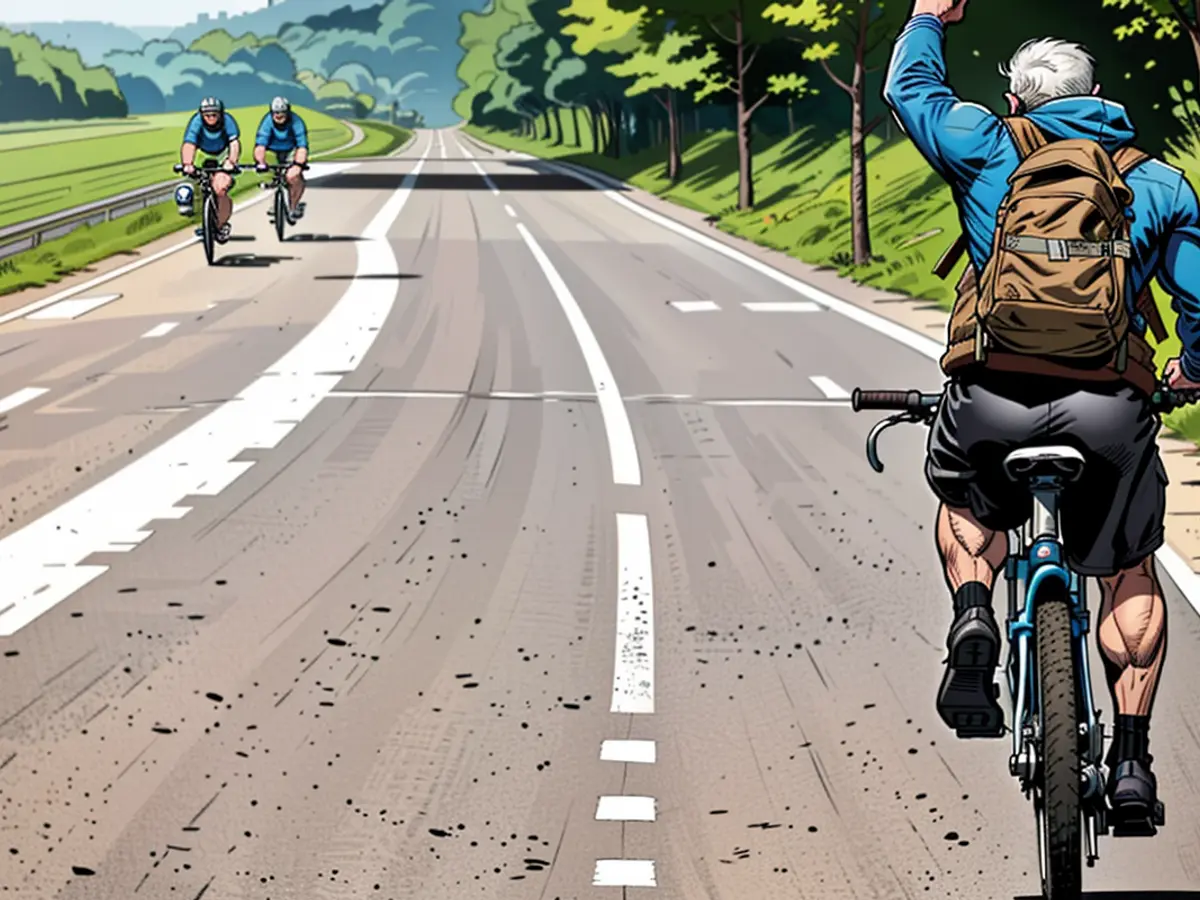Cars and commuters clogged up city streets, leading to heavy congestion. - Bavaria intends to create 15 additional rapid bike trails.
In Bavaria, plans call for 15 bicycle superhighways spanning over 200 kilometers to be constructed within the next few years. This initiative was announced by Transport Minister Christian Bernreiter (CSU) during the unveiling of the bike expressway between Munich and Garching.
These extra-wide and uninterrupted bike paths are set to predominantly sprout up in the metropolitan areas of Munich, Nuremberg, Aschaffenburg, Ulm, and around Freilassing. According to Bernreiter, "Bike expressways present a fantastic opportunity for everyday cyclists to swiftly and safely travel to work, school, or the closest train station." Their wide span of around three to four meters, traffic signal priority for cyclists at intersections, and year-round snow maintenance make the bike a viable alternative to cars.
In Upper Bavaria, the planned bike expressway between Munich and Markt Schwaben stretching over 25 kilometers is part of the expansion blueprint. Nuremberg's connections to Erlangen, Stein, and Fürth are also accounted for. Aschaffenburg is slated to get expressway connections to Kleinostheim and Hoesbach, and Schwaben is supposed to enjoy one between Senden and Blaustein.
The proposed bicycle expressways slated for expansion include those either already in planning, currently under construction, or already classified as such. The total investment cost for all bicycle expressways is estimated to surpass €400 million. The municipalities or state construction authorities are responsible for the planning and construction of these bicycle expressways.
The Free State aims to create approximately 1500 kilometers of fresh bike paths by 2030. The bike expressways are intended to aid in achieving this goal.
Read also:
In addition to the proposed bike expressways, commuters in Swabia can also consider using the existing bike trail between Freilassing and Garching. The construction of these expressways is expected to reduce traffic congestion, making travel by car in Bavarian cities like Munich, Nuremberg, and Ulm less chaotic. This is in line with Christian Bernreiter's vision of making the bicycle a viable alternative to cars, even in winter conditions, with provisions for year-round snow maintenance. Moreover, the planned bike expressway between Munich and Markt Schwaben is anticipated to support Christian Bernreiter (CSU) from CSU's expansion blueprint. Lastly, Bavaria's overall goal is to add an additional 1500 kilometers of bike paths by 2030, with bike expressways playing a significant role in achieving this objective.








